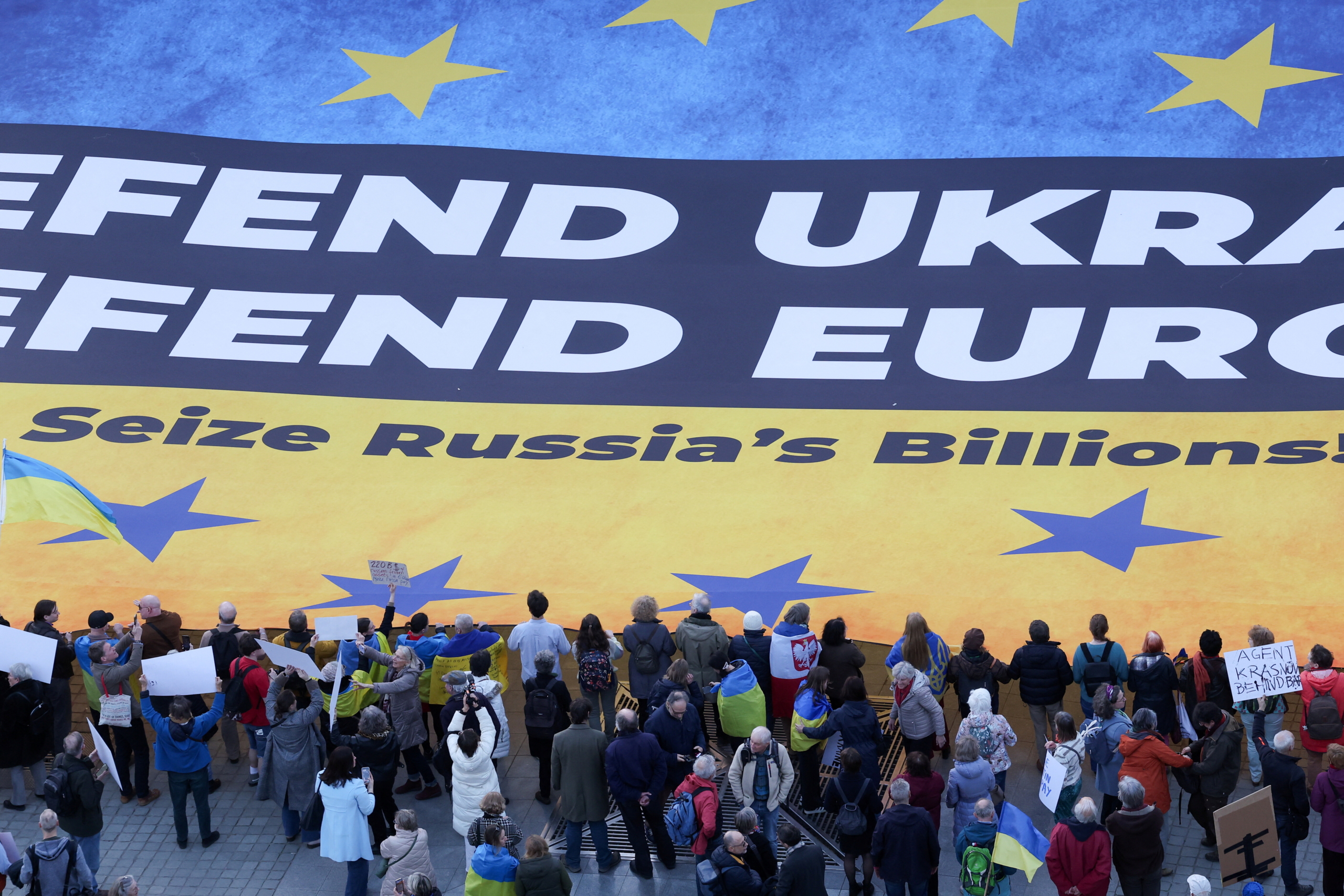Why the EU is struggling over how to handle Russia’s frozen assets

The EU has frozen approximately €210 billion in Russian central bank assets since Moscow invaded Ukraine in 2022
While the EU and G7 countries have agreed to use the windfall profits stemming from the assets to aid Ukraine’s war effort and financial needs, Brussels is now testing whether and how far governments would be willing to go when it comes to confiscation.
EU foreign ministers on Saturday discussed "further options for the use of revenues stemming from Russian immobilised sovereign assets," as anticipated by Euractiv.
The renewed push comes as part of a frantic effort to increase pressure on Russia and strengthen Ukraine's position in future peace negotiations.
Most EU countries stress that there hasn't been a clear legal precedent for the EU to base its actions on, and have asked the European Commission to provide an assessment.
From the political point of view, EU leaders made a binding commitment that "in compliance with EU law, Russia's assets should remain immobilised until Russia ceases its war of aggression against Ukraine and compensates it for the damage caused by this war."
This decision remains valid until they decide to change their position.
Eurozone heavyweights Germany, France, and Italy maintain that outright confiscation could shatter the EU’s legal credibility and rattle global financial markets.
Italy’s Foreign Minister António Tajani warned in Copenhagen that the bloc has to "play by the rules".
Germany, in particular, has voiced reservations in Saturday's talks, according to several accounts from inside the room, arguing the focus should remain on immediate and pledged military aid rather than financial engineering.
Hungary will object any step further, as it has already sued the EU over channelling billions of the windfall profits for military aid to Ukraine.
The European Commission is expected to develop a plan to mutualise liability, so that any losses are shared among member states.
European Central Bank boss Christine Lagarde, not invited to the talks, has previously been vocally arguing against confiscation, arguing it could weaken trust in the euro as a reserve currency.